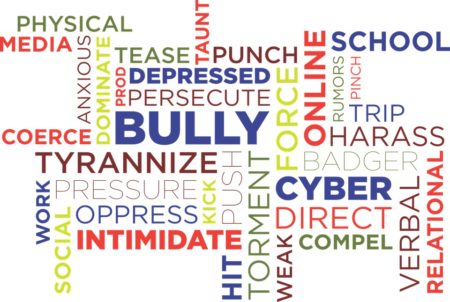5 ways by which we inadvertently encourage or condone online bullying/shaming/trolling

5 ways by which we inadvertently encourage or even condone online bullying/shaming/trolling.
For example – somebody forwards a message (the person may or may not the originator of the message) that could be insulting or shaming a particular person or community, wrapped up as a joke, say in a WhatsApp group. What we do or don’t do in these situations can make a difference.
- When you consider it a joke
Consider it – is this some friendly banter and making a joke or is this bullying masked as a joke – at the serious expense of someone who could be affected by it. When you laugh at it, say “ha ha” or send a smiley, you are actually encouraging and spreading the message that you are also enjoying the bullying. This makes people even more indifferent to the person who is at the receiving end, whoever that is.
- Ignoring or keeping quiet despite the discomfort
So this message makes you feel uncomfortable but you keep quiet, being not sure whether you should confront the message, show your discomfort, or even say anything about it. You feel safe in your silence, and you get reassured by the silence of others in the group, that – may be it is not a big deal.
- By not recognizing it and calling it out, calling out the behavior
Call out the behavior. If it is bullying, say it, if it is trolling, call it. If it is an attempt at a joke in a bad taste – call it out. Call out the behavior, don’t make it a personal attack. When we don’t do this the person would assume that their behavior has been accepted and there is nothing objectionable about it. They will continue to do it in other forums.
- Blindly forwarding the message to others
By blindly forwarding the message to other groups or other contacts, you are encouraging the behavior as well as engaging in the same behavior yourself. This cycle could continue endlessly in other groups too. Do not blindly forward these message before doing a background check and understand the context and the impact.
- The bystander effect
You might observe what is going on. You may recognize that this is bullying or abuse. But you keep waiting for someone else to say something. Or you believe that it is a collective responsibility and feel your own responsibility diminished, and don’t do anything about it. The bystander effect is a major barrier that comes into play over here, and by the outcome you are encouraging the unwanted behavior.
About the Author:
Kala Balasubramanian is a certified Counselling Psychologist/Psychotherapist with a Masters in Counselling and Psychotherapy, Diplomas in Counselling and has further certifications specializing in couple/marriage/relationship counselling and family counselling. As a professional counsellor she provides a supportive, understanding, professional and confidential environment to work with clients – Individuals and Couples explore their emotions, help them understand and manage their challenges, relationships and stress better.
